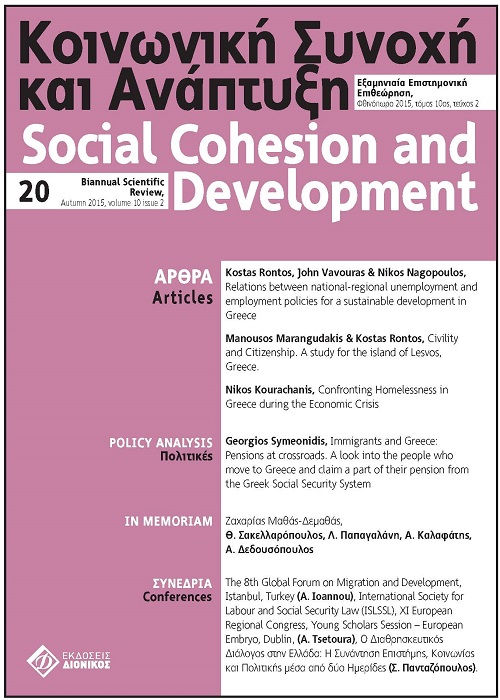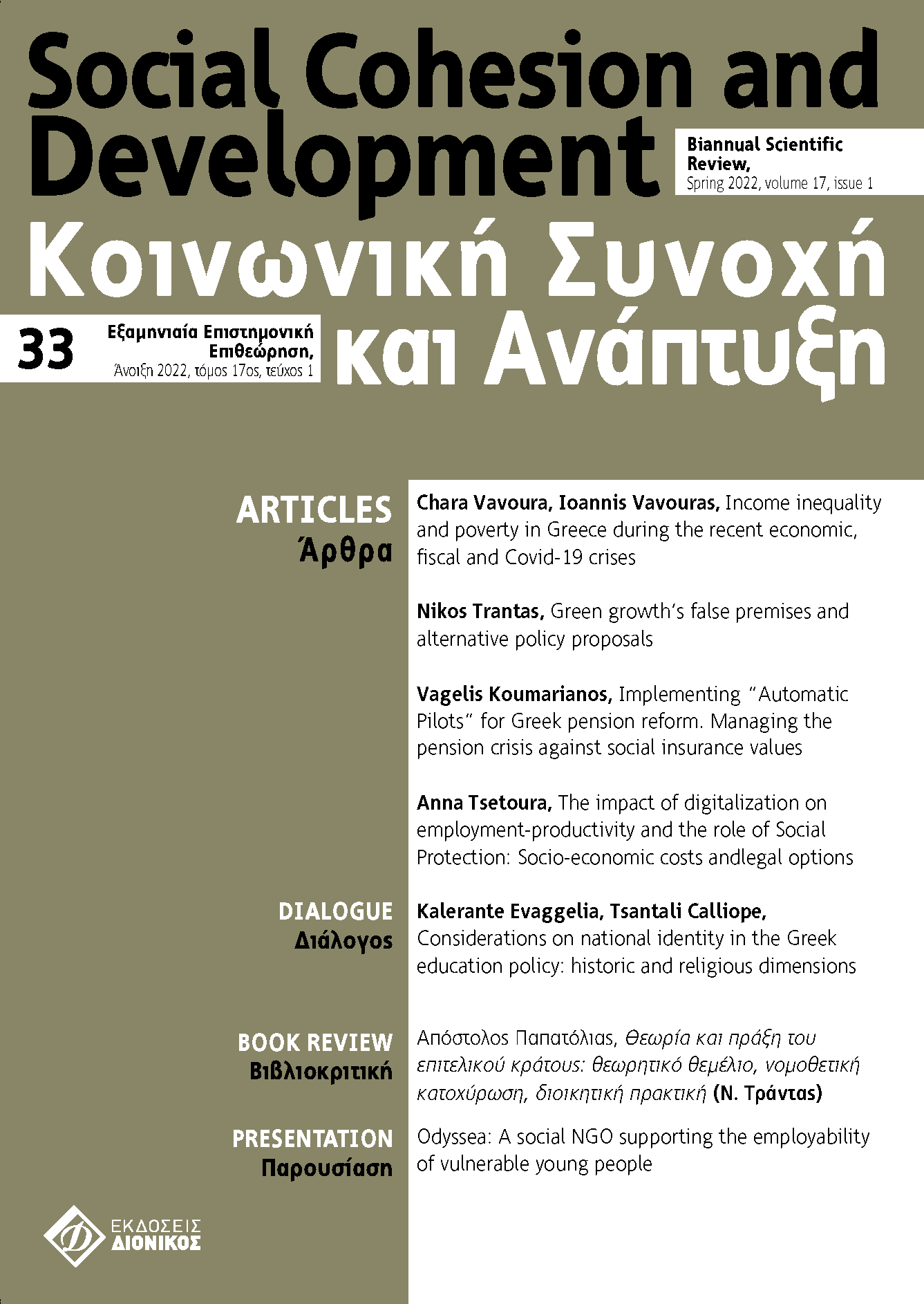Social security circumvention as an obstacle to social justice: the correlation with labour status and whistle-blowing

Abstract
This article explores social security delinquency, which can impair social justice
and its awarding. The parameters leading to social security fraud or delinquency are examined. Taking into account that the social security status is linked to employment, precarity in work or undeclared work are presented as a threat for the balance of a social security system. It is about a financial balance, but also a social one, since the previous can ultimately result in the disruption of social justice causing anti-motives for the participating in the social security system
and the proper fulfillment of the obligations it entails. After presenting the situation in the EU as regards the “grey zones” of employment which then have their impact on social security equilibrium, U.S.’ mechanisms for reporting fraud and whistleblower’s protection are analyzed in order to explain the recent trends in many of the EU countries of adopting similar measures.
Article Details
- How to Cite
-
Tsetoura, A. (2016). Social security circumvention as an obstacle to social justice: the correlation with labour status and whistle-blowing. Social Cohesion and Development, 10(1), 29–44. https://doi.org/10.12681/scad.9505
- Issue
- Vol. 10 No. 1 (2015)
- Section
- Articles

This work is licensed under a Creative Commons Attribution-NonCommercial-ShareAlike 4.0 International License.
Authors who publish with this journal agree to the following terms:
- Authors retain copyright and grant the journal right of first publication with the work simultaneously licensed under a Creative Commons Attribution Non-Commercial License that allows others to share the work with an acknowledgement of the work's authorship and initial publication in this journal.
- Authors are able to enter into separate, additional contractual arrangements for the non-exclusive distribution of the journal's published version of the work (e.g. post it to an institutional repository or publish it in a book), with an acknowledgement of its initial publication in this journal.
- Authors are permitted and encouraged to post their work online (preferably in institutional repositories or on their website) prior to and during the submission process, as it can lead to productive exchanges, as well as earlier and greater citation of published work (See The Effect of Open Access).





